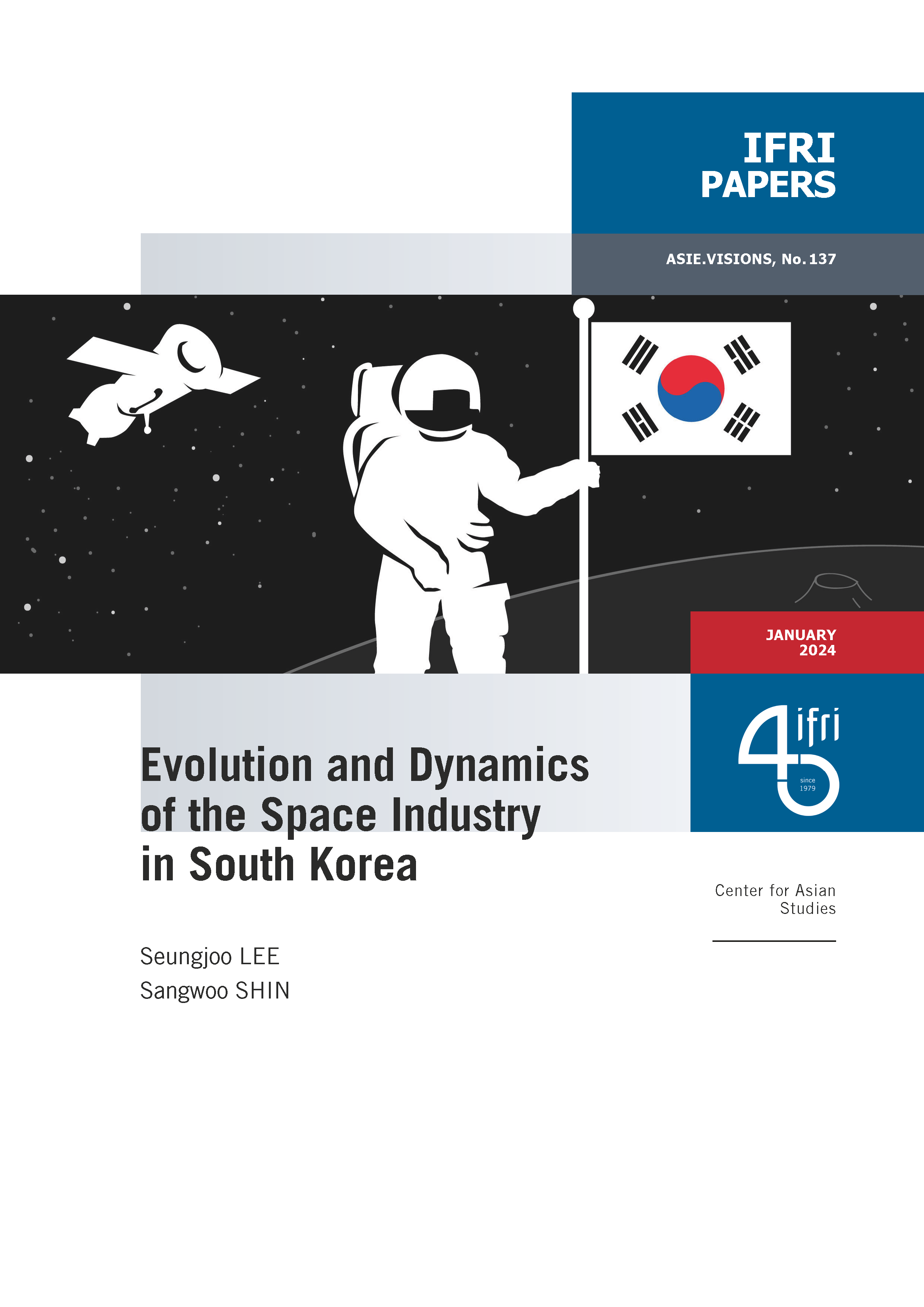Evolution and Dynamics of the Space Industry in South Korea

The advent of the 21st century has witnessed the rise of the space industry as a pivotal arena of technological innovation, economic opportunity, and geopolitical significance. Amidst this global landscape, South Korea has emerged as an increasingly influential player in space exploration and technology.

This paper comprehensively examines South Korea’s strategic approach to its space industry, covering growth patterns, governmental policies, and international positioning.
First, while discussing recent legislative changes and the Korean Aerospace Agency (KASA) establishment, we focus on the space industry ecosystem to highlight a shift to a market-oriented model for sustained growth. The shift in the space industry in South Korea hinges upon various factors, such as well-established governance, the private sector’s capital investment, and legal reforms.
Second, South Korea’s evolving space strategy, spanning three phases and aiming for global space economic power by 2045, is incorporated in the “Space Development 2.0” initiative that outlines goals to integrate space exploration with economic infrastructure. Also, South Korea’s military space strategy, outlining a three-stage plan for enhanced capabilities and institutional restructuring, has emerged as a new component of South Korea’s space strategy. The international cooperation strategy, including a strengthening space alliance with the U.S. and collaborations with emerging space nations, underscores South Korea’s commitment to a global and collaborative approach.
In conclusion, the paper provides a multifaceted analysis, offering insights into South Korea’s trajectory as a critical player in the evolving space landscape, covering legislative, economic, technological, and international dimensions.
Download the full analysis
This page contains only a summary of our work. If you would like to have access to all the information from our research on the subject, you can download the full version in PDF format.
Evolution and Dynamics of the Space Industry in South Korea
Related centers and programs
Discover our other research centers and programsFind out more
Discover all our analysesJapan’s Takaichi Landslide: A New Face of Power
Prime Minister Sanae Takaichi has turned her exceptional popularity into a historic political victory. The snap elections of February 8 delivered an overwhelming majority for the Liberal Democratic Party (LDP), driven by strong support from young voters, drawn to her iconoclastic and dynamic image, and from conservative voters reassured by her vision of national assertiveness. This popularity lays the foundation for an ambitious strategy on both the domestic and international fronts.
The U.S. Policy Toward Taiwan Beyond Donald Trump: Mapping the American Stakeholders of U.S.-Taiwan Relations
Donald Trump’s return to the White House reintroduced acute uncertainty into the security commitment of the United States (U.S.) to Taiwan. Unlike President Joe Biden, who repeatedly stated the determination to defend Taiwan, President Trump refrains from commenting on the hypothetical U.S. response in the context of a cross-Strait crisis.

China’s Strategy Toward Pacific Island countries: Countering Taiwan and Western Influence
Over the past decade, China has deployed a diplomatic strategy toward the Pacific Island Countries (PICs). This strategy pursues two main objectives: countering Taiwan's diplomatic influence in the region and countering the influence of liberal democracies in what Beijing refers to as the "Global South."

Opening up the G7 to South Korea to Address Contemporary Global Challenges
The G7’s global influence has diminished as powers like China reshape international governance through initiatives such as BRICS and the Shanghai Cooperation Organisation (SCO). With the G7 now representing just 10 per cent of the world’s population and 28 per cent of global GDP, its relevance is increasingly questioned.









